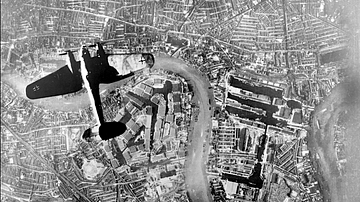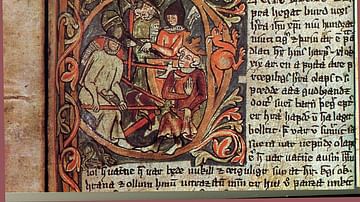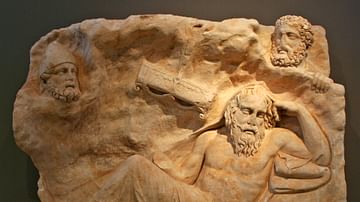Search
Remove Ads
Advertisement
Summary 
Loading AI-generated summary based on World History Encyclopedia articles ...
Search Results

Article
The Evacuation of Children in Wartime Britain
The evacuation of children from British cities during the Second World War (1939-45) was the largest population movement the country has ever experienced. Some 6 million women and children voluntarily evacuated from large cities to live with...

Definition
Supermarine Spitfire
The Supermarine Spitfire was a single-seater fighter plane, one of the most important aircraft of the Second World War (1939-45). Employed by the Royal Air Force in such crucial encounters as the Battle of Britain in the summer of 1940, the...

Article
Affair of the Diamond Necklace
The affair of the diamond necklace (1784-86) was a scandal that centered around Queen Marie Antoinette of France (l. 1755-1793). Although the queen was innocent of any involvement in a plot to steal a luxurious diamond necklace, the scandal...

Definition
Acropolis
An acropolis is any citadel or complex built on a high hill. The name derives from the Greek akro, "high" or "extreme/extremity" or "edge", and polis, "city", translated as "high city", "city on the edge" or "city in the air", the most famous...

Definition
Nicolaus Copernicus
Nicolaus Copernicus (1473-1543 CE) was a Polish astronomer who famously proposed that the Earth and other planets revolved around the Sun in a heliocentric system and not, as then widely thought, in a geocentric system where the Earth is...

Definition
Edward VI of England
Edward VI of England reigned as king from 1547 to 1553 CE. Succeeding his father Henry VIII of England (r. 1509-1547 CE), Edward was only nine years old at the time and so the kingdom was ruled by a council of nobles, foremost among whom...

Definition
London Blitz
The London Blitz was the sustained bombing of Britain's capital by the German and Italian air forces from September 1940 to May 1941 during the Second World War (1939-45). The objective was to bomb Britain into submission, but despite almost...

Definition
Saga
The Old Norse word saga means 'story', 'tale' or 'history' and normally refers specifically to the epic prose narratives written mainly in Iceland between the 12th- and 15th centuries CE, covering the country's history as well as Scandinavia's...

Definition
Rudolf Hess
Rudolf Hess (1894-1987) was deputy leader of the German Nazi Party and a key figure in the fascist regime of Adolf Hitler (1889-1945) until his bizarre decision in 1941 to fly to Scotland. Hess believed he could persuade Britain to withdraw...

Definition
Philoctetes
The play Philoctetes was written by one of the greatest of the Greek tragedy playwrights, Sophocles, in 409 BCE. Philoctetes is one of his surviving plays whose exact production date can be determined and is set in the final year of the Trojan...